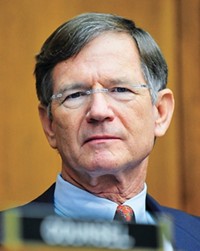Advertisement
Grab your lab coat. Let's get started
Welcome!
Welcome!
Create an account below to get 6 C&EN articles per month, receive newsletters and more - all free.
It seems this is your first time logging in online. Please enter the following information to continue.
As an ACS member you automatically get access to this site. All we need is few more details to create your reading experience.
Not you? Sign in with a different account.
Not you? Sign in with a different account.
ERROR 1
ERROR 1
ERROR 2
ERROR 2
ERROR 2
ERROR 2
ERROR 2
Password and Confirm password must match.
If you have an ACS member number, please enter it here so we can link this account to your membership. (optional)
ERROR 2
ACS values your privacy. By submitting your information, you are gaining access to C&EN and subscribing to our weekly newsletter. We use the information you provide to make your reading experience better, and we will never sell your data to third party members.
Energy
US energy research agency ARPA-E gets strong backing from House Science Committee
Some representatives support tripling funding
by Jeff Johnson
February 28, 2019

Reflecting a post-election shift, leaders of the US House of Representatives Committee on Science, Space, and Technology voiced near-unanimous support for basic energy research spending at a Feb. 26 hearing to examine the Department of Energy’s Advanced Research Projects Agency-Energy (ARPA-E). Some representatives even urged tripling the funding for this small agency that supports research for high-risk, high-potential projects that are unlikely to receive private funding.
ARPA-E has frequently had to eke out congressional funding. In its first appropriations in 2009, the agency received $15 million. More recently, President Donald J. Trump has sought to eliminate the agency in both his proposed budgets. Congress nevertheless gave the agency a 17% boost to $353 million for 2018 and another 4% boost to $366 million for 2019.
At the hearing, some representatives, joined by pro-ARPA-E witnesses, supported ramping up funding over five years to $1 billion annually to focus on climate change and energy-related technologies.
However, while supporting basic energy R&D, Rep. Frank Lucas (R-OK) noted that the US Department of Energy already spends some $6 billion annually on applied research. More money for ARPA-E would be redundant if the agency is not “refocused on innovative research,” he said. He added his concern that funding has supported big companies with access to market capital and projects that are already succeeding in the private sector.
Lucas and other members, both Republicans and Democrats, are examining legislation to reauthorize and reform the agency.
Committee Chairwoman Eddie Bernice Johnson (D-TX) noted broad support for ARPA-E, adding that its projects have led to the formation of 71 new companies, and 136 projects have attracted $2.6 billion in private-sector funding. Johnson also is cosponsoring Lucas’s reauthorization legislation.



Join the conversation
Contact the reporter
Submit a Letter to the Editor for publication
Engage with us on Twitter